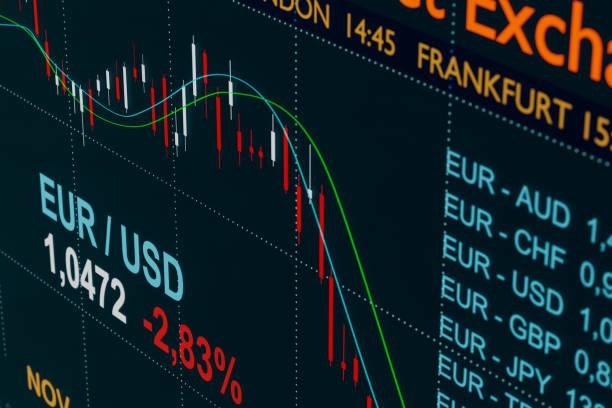The United Arab Emirates (UAE) has become a significant player in the global financial market, with a rapidly growing interest in CFD (Contract for Difference) trading. This financial instrument allows investors to speculate on the price movements of various assets without actually owning them. Among the most popular assets for CFD trading are forex pairs, which represent the foreign exchange market. In this article, we will delve into the specifics of the UAE CFD Market (In Arabic, it is called “سوق العقود مقابل الفروقات في الإمارات العربية المتحدة“) and the intricacies of forex CFD trading, providing insights into why it has become such a popular choice among traders in the region and globally.
The UAE CFD Market: A Growing Hub for Financial Innovation
The UAE’s financial sector has been evolving at a rapid pace, with the CFD market being a key component of this growth. The UAE CFD Market is characterized by its regulatory framework, technological advancements, and the increasing participation of both local and international investors. The Dubai Financial Market (DFM) and the Abu Dhabi Securities Exchange (ADX) are the two main stock exchanges in the UAE, and they have been instrumental in promoting the development of the CFD market. These exchanges have implemented robust regulatory measures to ensure transparency and protect investors, which has attracted more participants to the market.
The technological advancements in the UAE have also played a crucial role in the growth of the CFD market. The availability of advanced trading platforms and tools has made it easier for traders to access and trade CFDs. These platforms offer features such as real-time market data, advanced charting, and risk management tools, which are essential for successful CFD trading. The UAE’s commitment to embracing financial technology has positioned it as a hub for financial innovation, with many international brokers setting up operations in the country to tap into the growing market.
Forex CFD Trading: Leveraging the World’s Largest Market
Forex, or foreign exchange, is the world’s largest and most liquid financial market, with daily trading volumes exceeding $6 trillion. Forex CFD trading allows investors to speculate on the fluctuations in currency exchange rates without having to physically buy or sell the currencies. This is particularly appealing to traders in the UAE, as the region’s economy is heavily dependent on international trade and currency fluctuations can significantly impact businesses and investments.
One of the key benefits of forex CFD trading is the ability to trade on margin, which means that traders can control larger positions with a smaller amount of capital. This leverage can amplify both gains and losses, making it a double-edged sword that requires careful risk management. Traders in the UAE must be well-versed in the use of leverage and understand the potential risks involved.
Another advantage of forex CFD trading is the ability to trade both long and short positions. This flexibility allows traders to capitalize on both rising and falling currency values, providing more opportunities to make profits. However, this also requires a deep understanding of market trends and the ability to make informed decisions based on economic indicators and global events.
Strategies and Risk Management in Forex CFD Trading
Developing effective trading strategies is crucial for success in forex CFD trading. Traders in the UAE must consider various factors such as market volatility, economic data releases, and geopolitical events when formulating their strategies. Technical analysis, which involves studying historical price patterns and trends, is a popular method used by many traders to predict future price movements. Fundamental analysis, on the other hand, focuses on the underlying economic factors that influence currency values, such as interest rates, inflation, and GDP growth.
Risk management is another critical aspect of forex CFD trading. Traders must set stop-loss orders to limit potential losses and take-profit orders to secure gains. Diversifying their portfolio by trading in different currency pairs can also help reduce risk. It is essential for traders to have a disciplined approach to risk management, as the high leverage involved in forex CFD trading can lead to significant losses if not managed properly.
Regulatory Compliance and the Future of UAE CFD Market
The UAE’s financial regulatory authorities have been proactive in ensuring that the CFD market operates within a framework that protects investors and maintains market integrity. The Securities and Commodities Authority (SCA) is the main regulatory body that oversees the financial markets in the UAE, including the CFD market. The SCA has implemented strict regulations on leverage, margin requirements, and disclosure of risk to ensure transparency and fairness in the market.
Looking ahead, the future of the UAE CFD Market is promising, with continued growth expected as more investors recognize the benefits of CFD trading. The market’s development is likely to be driven by further technological advancements, increased regulatory cooperation with international markets, and the expansion of financial education initiatives to empower investors. As the UAE continues to position itself as a global financial hub, the CFD market, particularly forex CFD trading, is set to play a significant role in the country’s economic growth and diversification.
In conclusion, the UAE CFD Market has emerged as a dynamic and innovative space for financial trading, with forex CFD trading being a popular choice among investors. The combination of a robust regulatory framework, advanced trading technologies, and the allure of the world’s largest market makes the UAE an attractive destination for forex CFD trading. As the market continues to evolve, it is crucial for traders to stay informed about market trends, develop effective trading strategies, and practice rigorous risk management to capitalize on the opportunities presented by the UAE CFD Market and forex CFD trading.

